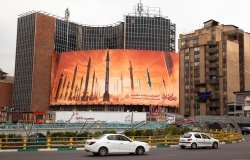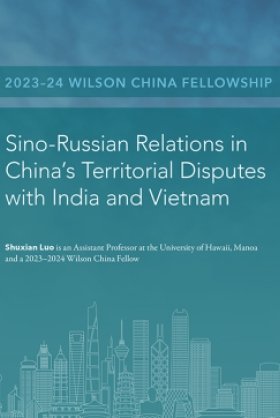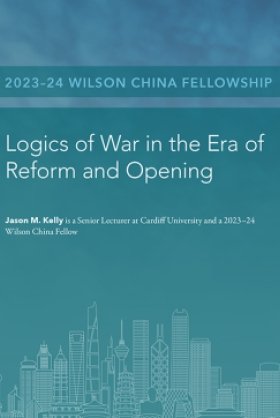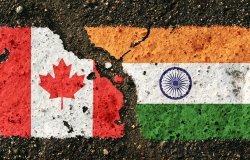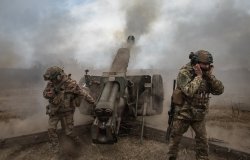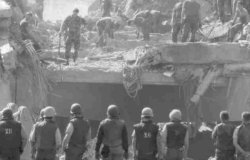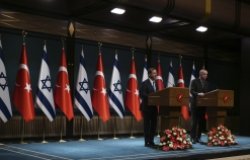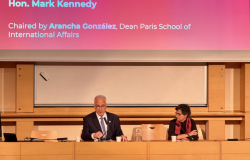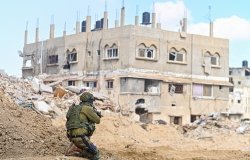The Arsonist and the Firefighter: How Hezbollah Radicalizes and Recruits Youth
Hezbollah ensures recruitment by perpetuating crisis and offering economic incentives to youth. Though its popularity has waned recently, the current conflict with Israel boosts its credibility. Lebanon must end its cycle of crisis to drain Hezbollah of its appeal.
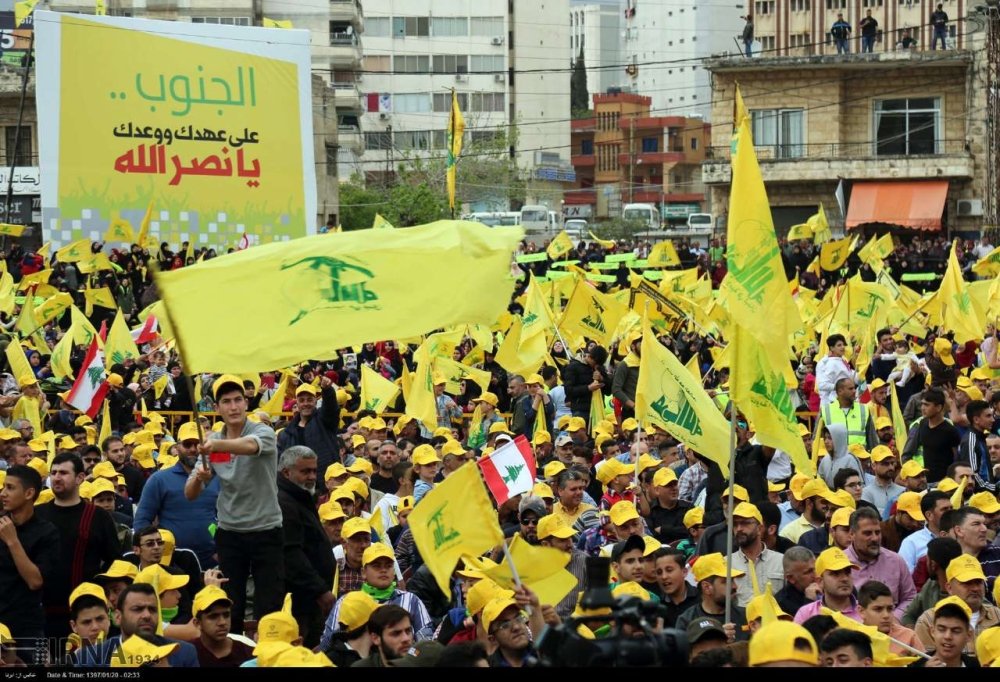
Tensions between Israel and Hezbollah are at their highest since the 2006 war, with escalating attacks displacing tens of thousands from southern Lebanon and killing over 1,000 in recent airstrikes. The conflict will worsen Lebanon’s domestic crises, deepening the economic collapse that started in 2019, in which the youth are among the most severely affected.
In 2018, a report by the Central Administration of Statistics (CAS) and the International Labor Organization (ILO) estimated that youth unemployment stood at 23%, double the national unemployment rate of 11.4%. A follow-up survey in 2022 revealed that youth unemployment had surged to 47.8%, compared to the national rate of 29.6%. The data reveals Lebanon's economic collapse severely impacts youth employment, with the labor market unable to absorb them.
The labor market is marked by informality, instability, low employment, job shortages, brain drain, unequal pay, segregation, and skill mismatch. Many Lebanese youth have held the government responsible for their hardships. They characterize the government as deteriorating, unstable, corrupt, and mismanaged.
Youth employment is disastrous
A 21-year-old Lebanese woman who recently graduated from a private university with a degree in modern languages and translation works part-time at a family member’s pharmacy due to a lack of jobs in her field. She has lost faith in the government’s ability to address unemployment and any significant issues. This acute lack of prospects has left the entire country, particularly the young generation, feeling hopeless, lacking trust, and deeply frustrated with the government. Feeling powerless to change the situation, she focuses on finding ways to earn a living. She acknowledges it's depressing but feels it's necessary for managing the situation and preserving her mental health.
Political parties tend to support only their loyal members, offering jobs, education, and healthcare in exchange for their loyalty.
She added, “The lack of opportunities pushes Lebanese youth to rely on personal connections and clientelism, further fueling corruption. Political parties tend to support only their loyal members, offering jobs, education, and healthcare in exchange for their loyalty. In contrast, those who remain loyal to the country rather than a party face greater challenges, often being forced to either leave Lebanon or struggle to secure employment and access quality education.”
The system increases youth vulnerabilities and creates a breeding ground for Hezbollah's recruitment. Unemploymentacts as a push factor for radicalization. However, it is not sufficient on its own to push youth in Lebanon toward radicalization. The personal grievances created by unemployment and lack of trust in the government are vulnerabilities that Hezbollah's extremist recruiters can easily exploit. Once recruiters add incentives to appeal to those grievances, many youths will fall under their sway.
Exploitation by incentives
Hezbollah provides pull factors like financial and social incentives. With the war between Hezbollah and Israel intensifying after the death of its leader, Hassan Nasrallah, there is nothing to stop Hezbollah from using financial incentives and the allure of resistance to pull more youth into its ranks. Playing on "animosity against Israel” is a powerful tool for Hezbollah. The group will likely combine this with its incentives to further cultivate a conducive environment for recruiting youth.
Hezbollah is not the de facto governing authority in Lebanon, which serves the group’s purposes agenda. This allows it to avoid accountability for economic crises and unemployment, which it, in turn, exploits by pointing the finger at the government.
David Daoud, a Senior Fellow at FDD, highlighted that Hezbollah retains a core group of ideologically committed supporters within the Shia community, while most backers, primarily from lower and middle-class neighborhoods, are drawn by material benefits. Lebanon's economic collapse has intensified reliance on Hezbollah as the state struggles to fulfill its responsibilities.
Hezbollah strategically leverages its vast network of financial institutions, social services, security apparatus, educational opportunities, and employment prospects to lure vulnerable youth. The organization presents the fight as a job, complete with contracts, salaries, and benefits, making it an attractive option for those with limited opportunities. It offers fighters monthly salaries paid in dollars, along with benefits for their families.
For young men from lower-class neighborhoods, these contracts appear lucrative, with the potential for advancement in their future. By offering financial stability, social incentives, and a sense of purpose, Hezbollah entices these individuals to serve its interests, ensuring a steady stream of recruits.
Abdullah, a young man from a town in the Bekaa Valley, shared his story of fleeing to Europe when Hezbollah began conscripting youth from the Shia villages. He added, “The war in Syria directly influenced Hezbollah's decision to mobilize young men from Shia communities by providing a salary and subjecting them to ideological indoctrination before sending them to fight in Syria. Hezbollah recruits not only by offering money, stable salaries, and compensations but also through economic and psychological pressure, leveraging its business network to influence young workers.”
Research on young Hezbollah fighters who went to Syria revealed that many initially claimed to be motivated by ideology, sectarian narratives, and the party's literature. However, as losses among Lebanese-Shia youth in Syria have increased, some fighters have begun to admit that financial incentives were their primary motivation. For these young men, Hezbollah symbolized a route out of poverty and an opportunity for a better future.
Support beyond the Shia
Before October 7, Hezbollah's support within the Shia community was declining due to its involvement in conflicts in Syria, Yemen, and Iraq, which shifted focus away from the Palestinian cause and eroded its legitimacy. The economic crisis in Lebanon further diminished its support as many blamed Hezbollah for protecting the corrupt political class. However, there has been a partial reversal during the war in Gaza. Hezbollah, with Iran's backing, can flaunt its "resistance" credentials against Israel, which helped solidify its support base within the Shia community and made inroads with certain Sunni and Christian groups.
Yet, Hezbollah does not command broad support across Lebanon, and many Lebanese do not want to see a war in the country. However, it still garners significant backing, particularly from the Shia community and, to some extent, from other sects with its role as a resistance movement against Israel.
Arab Barometer data suggests that perceptions of Hezbollah's positive role in regional politics have risen by 9% since 2022. As expected, Lebanese Shia are the most supportive of Hezbollah, with 78% holding a positive view, compared to 13% of Sunnis, 12% of Christians, and 16% of Druze. However, this rise in support is not from the Shia community, whose views have remained stable over the past two years. The rise in positive perceptions comes from other sects, with a 10-point increase among Druze, an 8-point increase among Sunnis, and a 7-point increase among Christians. This growing support may stem from sympathy for Hezbollah's stance on Israel rather than strong ideological alignment.
Hezbollah does not miss the opportunity to pull more support from other sects in Lebanon. Ibrahim Jouhari, Senior Analyst at the Data Liberation Project, highlighted that Akkar is one of the largest and poorest Sunni areas in Lebanon. Hezbollah has started giving money, employing more people, and providing social aid, all to increase its influence.
The irony is that Hezbollah can exploit a situation it very much has a hand in creating. Its political actions and military engagements have drawn Lebanon into the conflict between Hamas and Israel, worsening the economic situation and increasing frustration with the government. In many ways, Hezbollah is both the arsonist and the firefighter, trapping Lebanon and the Shia community in a vicious cycle that ultimately benefits the organization.
The cycle of violence initiated by Hezbollah must end immediately, and Lebanon must be pulled back from the brink of all-out war. To prevent further destabilization, it is urgent to reach a ceasefire deal in the Gaza Strip and reimplement UN Security Council Resolution 1701 in Lebanon, which ended the 2006 conflict.
In post-ceasefire Lebanon, youth employment should be viewed as a key indicator of economic recovery and protection against terrorism or other security threats.
In post-ceasefire Lebanon, youth employment should be viewed as a key indicator of economic recovery and protection against terrorism or other security threats. Rebuilding trust between the youth and the government requires empowering young people through job opportunities via capacity building, training, and mentorship. The US, France, and the UN should support the Lebanese government and local organizations in expanding programs like EMPOWER, which help Lebanese youth start businesses in critical sectors such as agriculture, digital technology, livestock management, and electrical maintenance, rather than waiting for jobs to emerge. Expanding these efforts into regions with high unemployment, like Bekaa, Baalbek-Hermel, and South Lebanon, might help reduce the appeal of extremist groups and alleviate economic hardships.
The views represented in this piece are those of the author and do not express the official position of the Wilson Center.
About the Author


Middle East Program
The Wilson Center’s Middle East Program serves as a crucial resource for the policymaking community and beyond, providing analyses and research that helps inform US foreign policymaking, stimulates public debate, and expands knowledge about issues in the wider Middle East and North Africa (MENA) region. Read more
